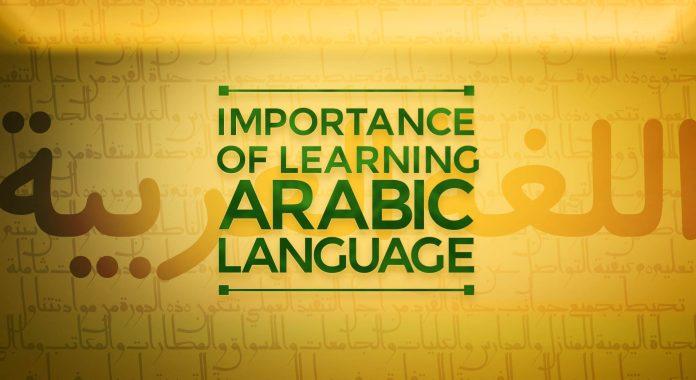The repository of Islamic knowledge and wisdom is the Arabic language. Since her knowledge is closely related to Islamic sciences and holy rituals, it is impossible to correctly understand Islamic sciences without also understanding Arabic. Some have even claimed that Arabic is a component of Islam. The following are some ways that the Arabic language is crucial for comprehending and interpreting the Qur’an:
First-order:
Given that the Noble Qur’an was revealed in Arabic, knowing the language is one of the most important skills for comprehending and interpreting it. It is incorrect to comprehend and interpret it using the same language the prophet’s heart filled with when the faithful spirit descended. God bless him and grant him peace.
The tongue compares it to the first predecessors of the Emigrants and Ansar in all their affairs. There was no way to control faith and its knowledge except by holding the tongue. Its ability came from religion, and the consideration of speaking with it made it easier for the people of faith to know the religion of God, closer to establishing the rituals of religion. Other issues: Customs, which derive from sciences and morals, greatly influence what God loves and hates. Because of this, the Sharia came to follow the words and deeds of the first predecessors, and it is disliked to deviate from them to others without necessity.
According to Imam Al-Shatibi, the Qur’an was revealed in Arabic, so the only way it can be understood is in this specific way. God Almighty states that the Qur’an was indeed sent down in Arabic, and He also states that it was revealed in a clear Arabic tongue.
“This is a clear Arabic tongue, and the tongue of those who deviate from it is non-Arab,” declared the Almighty. And Allah says: (And had We composed the Qur’an in a language other than Arabic. Why not, they would have questioned. Its verses have been thoroughly explained. Is it both an Arab and a non-Arab? Not on this particular side.
Second-order:
To comprehend the Holy Qur’an and its interpretation, one must learn Arabic. This allows one to discern the intentions of the Arab people through their speech and literary works. The statement and its meanings. The use of the Arabs and their methods in their sermons, poems, and linguistic structures lies behind that. This includes the representation that occurs during language use and the application of interpretation, ranging from the language users’ own understanding to the meanings of verses that are unclear to those who are born.
Furthermore, Imam Al-Shatibi states: By that, I do not only mean language, grammar, conjugation, semantics, or any other branch of tongue-related sciences.
Third command:
The Prophetic Sunnah, the motivations behind revelation, verse stories, the Qur’anic context, the hints that surrounded the discourse during the disclosure, and other sources that cannot be taken by language are just a few of the other sources and aspects that the interpreter must be aware of in order to base his interpretation in addition to the language itself. He disregarded these sources and elements in favor of relying only on language, even though verse may not have the intended meaning.
Al-Qurtubi stated: “Anyone who hastened to elicit meanings by simply understanding Arabic has made many mistakes.” This refers to those who did not assess the apparent meaning of the interpretation.
Fourth directive:
Weakness in the Arabic language about reading, writing, knowledge, and application, as well as ignorance of its rules of inflection, syntax, derivation, meanings, and statement, are among the factors contributing to erroneous interpretations, among the causes of deviation in understanding the Qur’anic verses, and among the causes behind the emergence of aberrant understandings of legal texts. Other linguistic expressions, along with their historical context, before addressing these writings via Ajman. Due to the popularity of melody and its appearance, the spread of foreign languages, the entrance of non-Islamic countries, the lack of understanding of the language’s historical context and implications, and the lack of interest in its preservation, it seemed that this was a case of linguistic weakness and ignorance.
